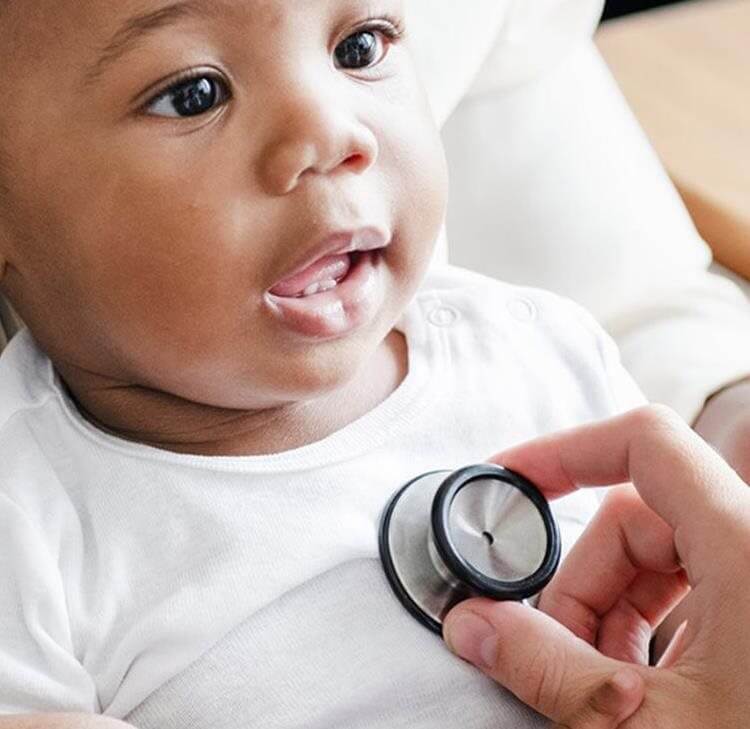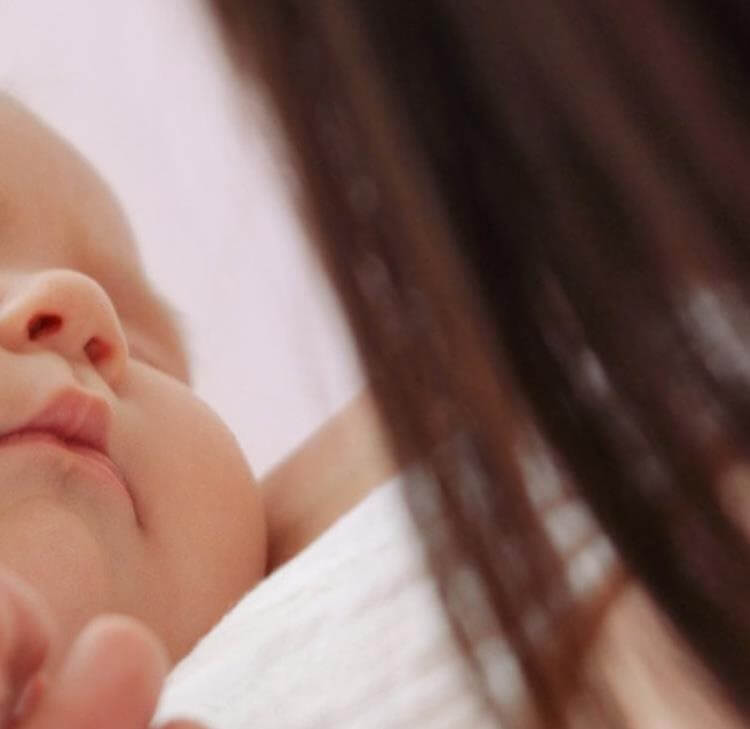UHDB have invested in telemetry, a wireless monitoring device used during labour to continuously monitor a baby’s heart rate. Traditionally clinicians rely on cardiotocography (CTG) belts, but these require use of straps that aren’t waterproof and aren’t suitable for water births.
The benefit of using telemetry is that people in labour can be more mobile and use a birthing pool while still performing safe monitoring of the fetal heart. Telemetry devices are used at Royal Derby Hospital and Queen’s Hospital Burton.
Jane Harrington, Fetal Monitoring Lead Midwife at UHDB comments that "this is really good news for those coming to UHDB to have their baby and it means that even if pregnant people require continuous fetal heart monitoring, they have options and can develop a birth plan that is personalised to them".
This is just one of the pleasing changes that has been made across UHDB’s maternity and neonatal services to improve safety and experience for patients in pregnancy and labour.
Our specialist maternity team
At Browne Jacobson, we are committed to supporting NHS Trusts and health care organisations with delivering on their strategy to improve maternity outcomes. Please do get in touch to discuss how our specialist maternity team may be able to help.
For more resources and to learn about our specialist team, visit our maternity resources hub.
Discover more
You may be interested in...
Opinion - Maternity services
Celebrating maternity excellence
Opinion - Maternity services
Antenatal Screening Wales Annual Report 2022-24
Legal Update - Maternity services
The Generation study at UHDB: A pioneering approach to genetic healthcare
Legal Update - Maternity services
Improving maternity care for recent migrant women with language barriers
Legal Update - Maternity services
New rights to Neonatal Care Leave and Pay Act: What do employers need to know
Legal Update - Maternity services
Improving maternity safety: Insights from MNSI’s annual recommendation report
Legal Update - Maternity services
University Hospitals of Derby and Burton NHS Foundation Trust invest in telemetry to improve maternity care and patient experience in labour
Legal Update - Maternity services
Informed consent and caesarean birth: RCOG launches new obstetrics animation
Legal Update - Maternity services
MNSI annual report 2023/24: Key insights and future ambitions for maternity safety
Opinion - Maternity services
Enhancing care for women with ectopic pregnancies: Insights from MBRRACE-UK
Legal Update - Maternity services
DISCERN study published: How to improve discussions with families when things go wrong in maternity care
Opinion - Maternity services
Revolutionising patient care: Innovative kit for instant translation in 240 languages
Opinion - Maternity services
New Government plans for NHS maternity services: What can we expect?
Opinion - Maternity services
New online system streamlines maternity services at The University Hospitals of Derby and Burton NHS Foundation Trust
Opinion - Maternity services
The power of parental touch for babies undergoing painful procedures
Opinion - Maternity services
Newborns born outside of hospitals at higher risk of hypothermia during emergency responses
Opinion - Maternity services
Health Service Journal reports on growing trend of “free birthing”
Legal Update - Maternity services
Introduction of baby loss certificates gives recognition to millions of bereaved families in the UK
Legal Update - Maternity services
Chesterfield Royal Hospital ranked amongst the top Trusts nationally in the 2023 Maternity Survey
Opinion - Maternity services
Coronial investigations of stillbirths - summary of consultation responses
Opinion - Maternity services
BBC investigation finds NHS interpreting service problems contributed to baby deaths and serious brain injuries
Legal Update - Maternity services
The NHS Long Term Workforce Plan 2023
Legal Update - Maternity services
HSIB publishes 'Maternity Investigation Programme: Year in Review 2022/23'
Opinion - Maternity services
Racial disparities in maternity care
Opinion - Maternity services
University Hospital Leicester hold their inaugural Maternity Safety Conference
Opinion - Maternity services
Changes to redundancy protections for employees post-maternity leave
Press Release - Maternity services
Father Christmas comes to University Hospital Coventry and Warwickshire care of Browne Jacobson’s Birmingham Office Community Action Group
Opinion - Maternity services
The Patient Safety Incident Response Framework (PSIRF) and its impact on maternity services
Guide - Maternity services
Mediation guide for Clinicians: What do you need to know and how do you need to prepare
Opinion - Maternity services
Baby Loss Awareness Week
On Saturday 15 October a wave of light swept the internet when thousands of people flooded social media with pictures of candles to remember the babies that they have lost. This event signifies the end of Baby Loss Awareness Week which aims to break the silence that is associated with baby loss in pregnancy and infancy.
Opinion - Maternity services
The impact of COVID-19 on maternal deaths
HSIB published its report on Maternal deaths during the first wave of COVID-19. The report takes a closer look at the impact that COVID-19 had during the initial period of March to May 2020.
Legal Update - Maternity services
The Ockenden Final Report – a blueprint for safe maternity care from ward to Board
The much anticipated final Ockenden report was published on 30 March 2020. The final report sets out the findings of the review into care provided to 1,486 families, and sets out a blueprint for safe maternity care.
On-Demand - Maternity services
Maternity mock inquest - film 1
Consent is often a key issue in obstetric claims and if it is relevant to the facts of the death, its likely to be an area explored by a coroner.
On-Demand - Maternity services
Maternity mock inquest - film 2
This video illustrates some of the issues that can arise when a witness is poorly prepared.
On-Demand - Maternity services
Maternity mock inquest - film 3
This film highlights the importance of creating an open and transparent culture where staff feel able to speak up will help Trusts to identify problematic practise before significant issues arise.
Legal Update - Maternity services
Checklist when preparing for remote participation in an inquest hearing
Lockdown restrictions in March 2020 led to many inquest hearings being postponed. As restrictions eased, Coroners came under increasing pressure to reduce the number of delayed inquest hearings. In June 2020, the Chief Coroner issued Guidance No. 38 to facilitate remote participation in coroner’s inquests.





























